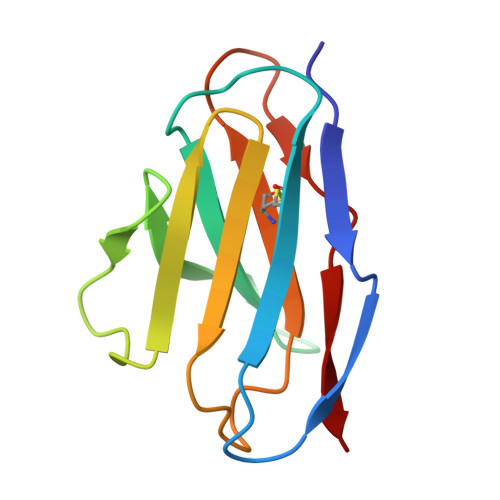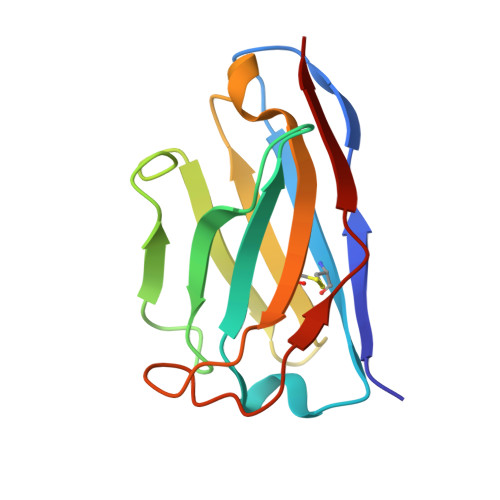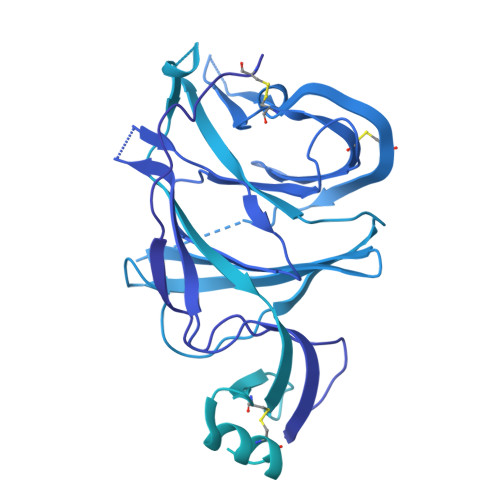Design of customized coronavirus receptors.
Liu, P., Huang, M.L., Guo, H., McCallum, M., Si, J.Y., Chen, Y.M., Wang, C.L., Yu, X., Shi, L.L., Xiong, Q., Ma, C.B., Bowen, J.E., Tong, F., Liu, C., Sun, Y.H., Yang, X., Chen, J., Guo, M., Li, J., Corti, D., Veesler, D., Shi, Z.L., Yan, H.(2024) Nature
- PubMed: 39478224
- DOI: https://doi.org/10.1038/s41586-024-08121-5
- Primary Citation of Related Structures:
9C44, 9C45 - PubMed Abstract:
Although coronaviruses use diverse receptors, the characterization of coronaviruses with unknown receptors has been impeded by a lack of infection models 1,2 . Here we introduce a strategy to engineer functional customized viral receptors (CVRs). The modular design relies on building artificial receptor scaffolds comprising various modules and generating specific virus-binding domains. We identify key factors for CVRs to functionally mimic native receptors by facilitating spike proteolytic cleavage, membrane fusion, pseudovirus entry and propagation for various coronaviruses. We delineate functional SARS-CoV-2 spike receptor-binding sites for CVR design and reveal the mechanism of cell entry promoted by the N-terminal domain-targeting S2L20-CVR. We generated CVR-expressing cells for 12 representative coronaviruses from 6 subgenera, most of which lack known receptors, and show that a pan-sarbecovirus CVR supports propagation of a propagation-competent HKU3 pseudovirus and of authentic RsHuB2019A 3 . Using an HKU5-specific CVR, we successfully rescued wild-type and ZsGreen-HiBiT-incorporated HKU5-1 (LMH03f) and isolated a HKU5 strain from bat samples. Our study demonstrates the potential of the CVR strategy for establishing native receptor-independent infection models, providing a tool for studying viruses that lack known susceptible target cells.
Organizational Affiliation:
State Key Laboratory of Virology, College of Life Sciences, TaiKang Center for Life and Medical Sciences, Wuhan University, Wuhan, China.



















